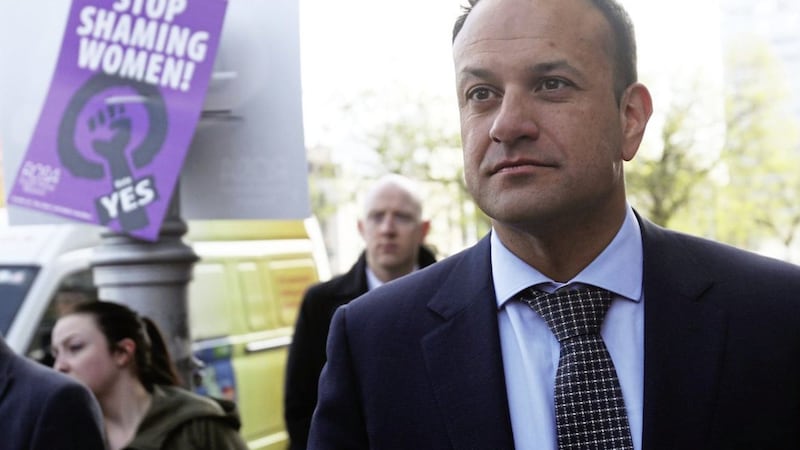IN JUST over a week voters in the Republic will be asked to make a decision that will impact hundreds of thousands of Irish women and girls, now and in years to come.
The Eighth Amendment of the Republic’s Constitution gave equal rights to the mother and the unborn and made travelling for abortion illegal.
The last time the people of Ireland were asked their opinion on this issue was in 1983. Following a fairly acrimonious campaign almost 67 per cent voted in favour of the amendment that has remained controversial ever since.
The Eighth Amendment took its place in the Irish Constitution at a time when the nation was still heavily regulated by Catholicism.
Two years after it was introduced 15-year-old Ann Lovett gave birth underneath a statue of the Virgin Mary in Granard, Co Longford. Both she and her baby died.
In 1992 a 14-year-old rape victim was prevented from travelling for an abortion. The X case caused uproar and reversed the legal practice of forbidding women to travel for abortion.
Hundreds of thousands of Irish women and girls have taken boat and plane journeys over the years to terminate unwanted pregnancies.
The increased use of online abortion pills in early pregnancy makes exact figures difficult to calculate but it is estimated that on average nine women per day travel from the south to England for abortion.
The number of women from the island – north and south – requesting early medication abortion through the online service Women on Web more than trebled from 548 in 2010 to 1,748 in 2016.
In the patriarchal Ireland of our grandmothers, unmarried mothers, victims of incest and marital rape were treated like a contagion; locked in mother-and-baby homes, the mortality rate for their babies so high it has led to accusations of infanticide, bodies placed in septic tanks and mass unmarked graves; those who lived adopted against their mother’s wishes; women used as slave labour in laundries.
The people responsible for this – the people who have yet to properly apologise or pay compensation to those they abused and neglected – in my eyes, those people don’t get to cast moral judgment on today’s young women. They don’t get to say what is a sin or claim both lives matter – because they helped create a patriarchal system in which neither life mattered.
When you spent decades telling women that having a baby was a sin you don’t get to tell them not having one is also a sin.
I was a teenage mother. I had a family who supported me, not everyone has that luxury, not everyone has that support.
As a nation we should be providing women with everything they need to make informed decisions.
No child should be going to bed hungry. No woman should be forced to carry a dying non-viable foetus or die of sepsis because a doctor thinks treating her will break the law. No child should be forced to be a mother against her will or before her time, to give birth to a rapist’s baby, to have their life defined and dictated by other people’s religious views.
The current referendum campaign has been no less acrimonious than the 1983 one. Televised debates have almost all ended in shouting and accusations.
Abortion is an emotive and sensitive subject. It’s also very personal.
Those who are against abortion under any circumstances will never be forced to undergo a termination against their will. Their beliefs and values will not be tested or disrespected in any way.
Abortions have continued to happen, thousands every year. The Eighth Amendment hasn’t stopped abortion. It has exported it.
This is not a voter choice between having no terminations or opening the floodgates. It is about a nation providing care for women and girls and treating them as equals in their own country.
It is about trusting women to do what is best and not treating them and their bodies like property of the state. It’s about an end to punishing tragedy.
As an Irish woman living in the north I don’t have a vote. I live in a place where legislative social change is not likely any time in the near future, where my daughters do not have body autonomy.
And so I look to the south for progressive change and, as in the same-sex marriage referendum, I hope that those who do have a vote use it and use it with compassion.








